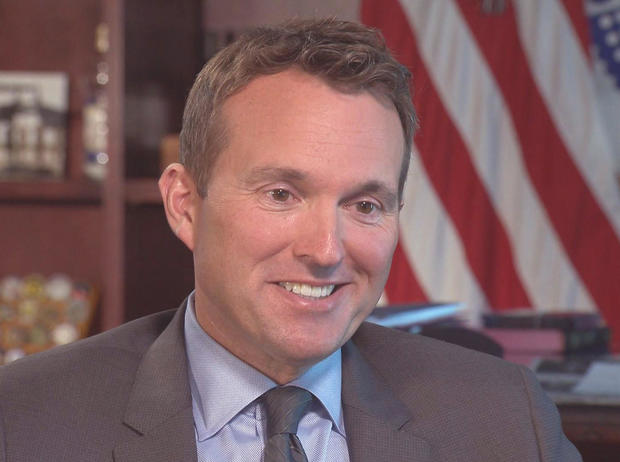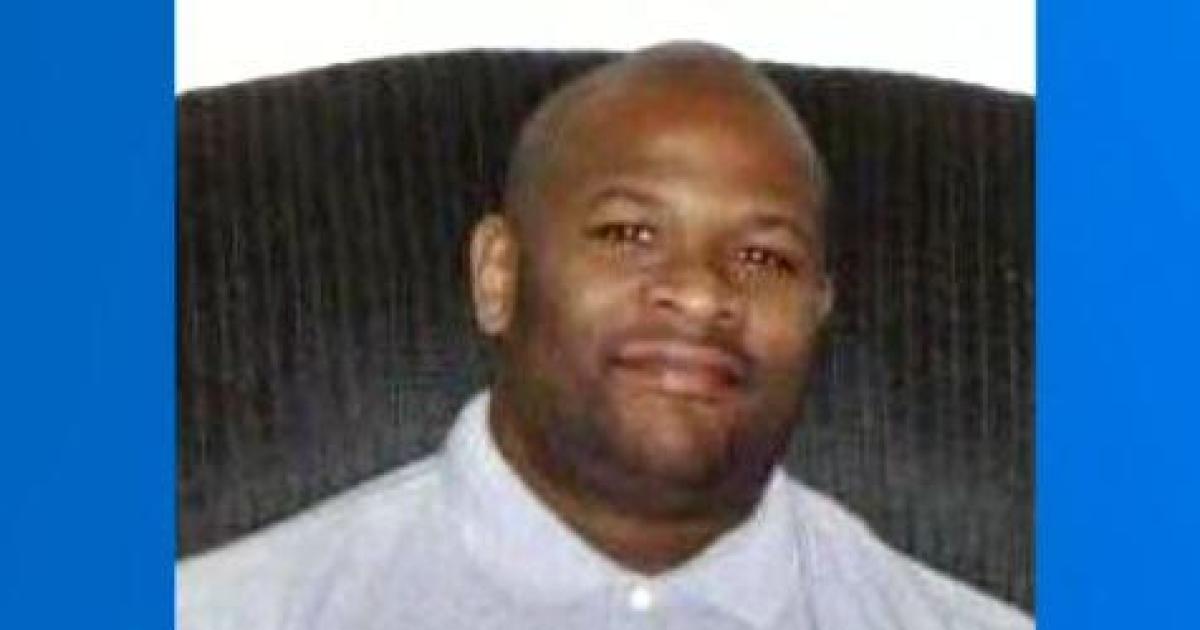A final salute to Eric Fanning
Time now for a final salute to a departing member of the Pentagon’s civilian leadership. Eric Fanning is leaving the post of Secretary of the Army. He’s also leaving behind a unique legacy. Faith Salie conducts our exit interview:
“You had a parade,” said Salie. “Who gets a parade?”
“I did!” laughed Eric Fanning. “Secretaries of the Army do. Traditions are very important in the Army.”
Indeed, this welcome ceremony was traditional. But the man it honored is not.
Eric Fanning, the outgoing Secretary of the Army, is also the first openly-gay Secretary of the Army.
“It seems like ancient history now, but ‘Don’t ask, don’t tell’ was in existence when this president was sworn in,” he said.
The repeal of the “Don’t ask, don’t tell” policy of dealing with gays in the military came just five years before Fanning’s appointment. Still, even before that, Fanning held high-level civilian jobs in all three branches of the military -- Deputy Under Secretary of the Navy, Under Secretary of the Air Force, and Under Secretary of the Army.
“It’s interesting to me that you have been in service to the military for decades, and that you never served in the military,” said Salie.
“We have an important tradition in this country, constitutional tradition as it is, of civilian control of the military,” Fanning said.
“So the military should not be in control of the military?”
“That’s a very important part of what made this country such a secure, successful democracy over all these many years.”
While the generals manage the combat side of the Army, 48-year-old Fanning has run the business side.
“I am the CEO,” he said. “My job is to recruit, train, equip and then take care of the morale and welfare of soldiers and their families and our civilian workforce. And ultimately I’m responsible for the behavior of all of those soldiers, and so I am paying attention to make sure that they are representing well, and in almost all cases they are.”
“How do you look at the morale of our soldiers and watch their behavior?”
“Well, a lot of it’s interaction.”
Fanning should know, he comes from a military family. Three of his uncles had careers in the armed services.
Salie asked, “Did you think you were gonna be in the military when you were a kid?”
“It’s something you think about when you grow up in that environment and your uncles talk to you about it,” Fanning replied. “But you weren’t allowed to serve in the military if you were gay. A number of people serve and they make the choice to serve, serve in silence. I just didn’t think that that was gonna work for me.”
“How did you come out to your uncles who were in the military?”
“I don’t know that there was a specific coming-out moment for me with the uncles. They found out, and they’ve been great.”
During his relatively short tenure, Secretary Fanning made 31 trips to Army installations around the globe, including at Oahu, Hawaii.
“This is an incredibly large organization,” he said. “Very hierarchical. And you don’t make very informed decisions at this level if you don’t have that input from all the different levels.”
In fact, Fanning says he’s found that his appointment -- it took months for him to receive Senate confirmation -- was ultimately embraced by all kinds of Army personnel.
Salie asked, “How do you reconcile the old Army with this new Army, where there are older men, older soldiers welcoming you so warmly?”
“It is different now, not just in the Army. It’s different in the United States of America. Because people see the sun still comes up, the car still starts, the dog still needs to be fed or what have you. Nothing changed today because my neighbor, my son, my shipmate, whatever it is, came out.”
In part because of that belief, under Fanning’s watch, the Army has become more inclusive with women and transgender soldiers serving in combat roles. And, as his final directive as secretary, Fanning has issued grooming and dress waivers to Sikhs and Muslims for religious reasons.
“What drives me personally is the view that the more the Army looks like society and the more voices we can bring in, the stronger that we’re gonna be,” he said.
“Do you think your being gay made you want to really focus on inclusivity and diversity in the Army?”
“Absolutely. I know from my own personal experience how important it is to see someone that you can identify with in a leadership position, so that you can see yourself in that position.”
“Do you think that your commitment to diversity in the Army will be continued in a new administration?”
“I don’t know,” he replied. “But I do know that it’s one thing to have a conversation about whether or not someone should be allowed to put on a uniform. It’s a very different conversation to say someone should no longer be able to serve. That’s a harder conversation to have. Progress is never completely linear. But it is hard to walk back on some of these things.”
Ben Masri-Cohen, who works at the National Gallery in Washington, is Fanning’s partner. “He’s always been himself. Never had to hide who he was.”
They say their ability to weather storms helps make their relationship work.
Salie said, “You guys went through a confirmation process. You’re tighter than ever. So do you think there might be a wedding?”
“Things are going great,” Fanning replied. “I love him very much.”
“I think we’re in a good place right now and will only get better,” Masri-Cohen added.
Later this week, Secretary Fanning will leave his office at the Pentagon one last time. And just as they welcomed him with tradition, they’ll say goodbye with one.
“I’ll have my farewell ceremony,” he said, “and then the clapping out, where they line the hallways and the stairwell as you leave for the last time. So that’ll be the 18th.”
Salie asked, “You gonna cry?”
“Yeah, I’m sure I’ll be emotional. I mean, I’m emotional about a lot of things right now because it’s an incredibly rewarding experience. And so, it’ll be hard to leave. I’m moving on. It’ll be good for me. And we’ll figure out what that means in due course.”
For more info:
- Eric Fanning, Secretary of the Army (army.mil)




